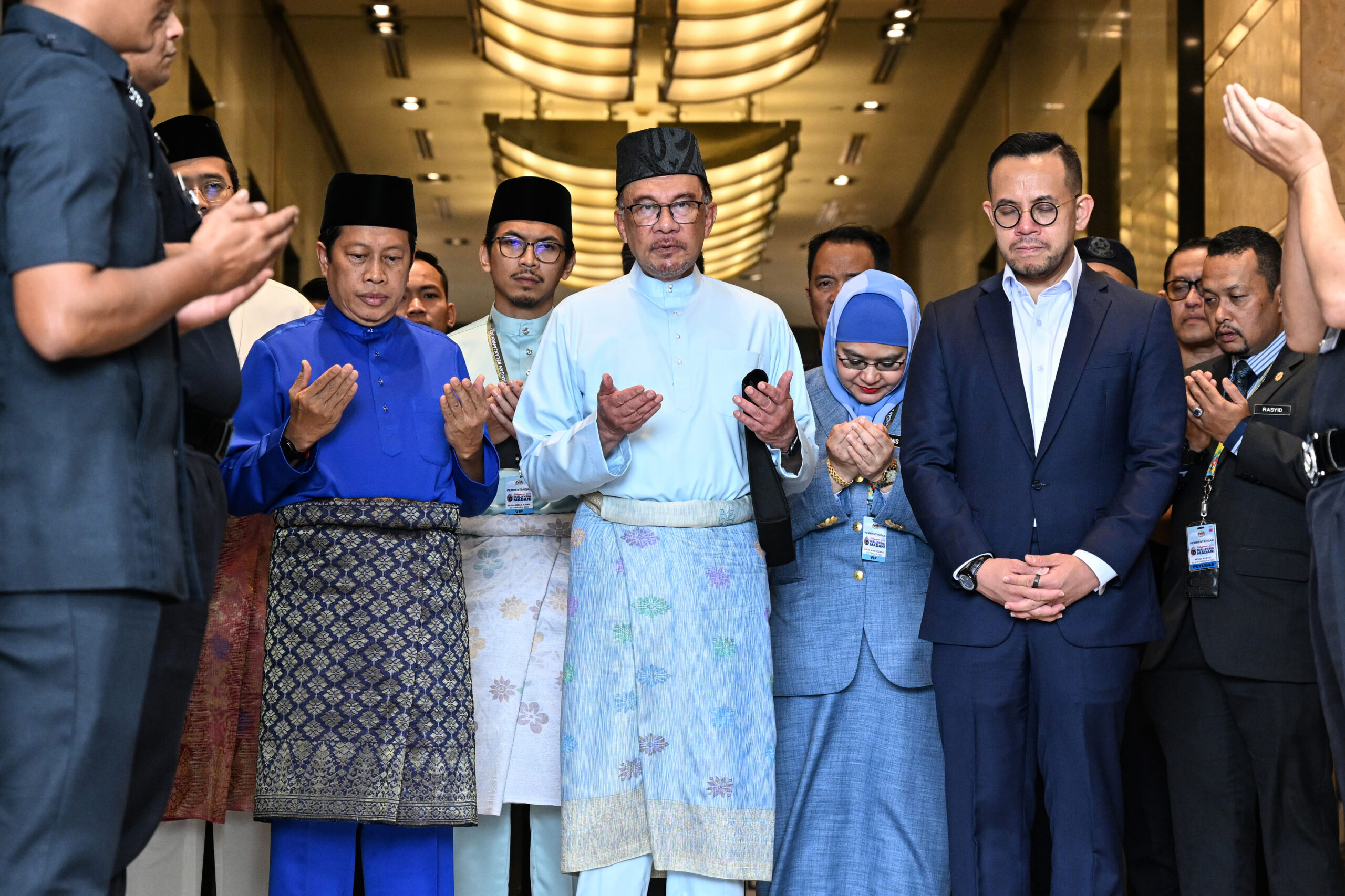Malaysia state elections uphold status quo, hint at the future
Seen as a referendum of Prime Minister Anwar Ibrahim’s government coalition, Saturday’s elections ended with the six incumbent state governments maintaining their status. But the breakdown of the vote holds important clues about the electoral landscape

Both a lot and very little happened on Saturday as voters in six Malaysian states headed to the polls to select their state assemblies.
But while the incumbent governments in each of the states were able to hold onto power, the results still have the potential to shift power dynamics in a profound way at the national level.
The state elections have taken on national significance due to the inconclusive results of last year’s general election, said James Chin, a professor of Asian studies at the University of Tasmania. With no decisive winner, long-time rival coalitions Pakatan Harapan (PH) and Barisan Nasional (BN) came together to form a unity government under Prime Minister Anwar Ibrahim.
Saturday’s elections were the first opportunity voters have had to show their support or disapproval of this government at the polls.
“The main reason it is widely seen by everybody in Malaysia, especially the political class, as a referendum on Anwar Ibrahim is because [in] last November’s election there were no winners,” Chin said.
While Anwar’s PH was able to hold its own among the electorate on Saturday, BN saw its support in the ethnic Malay community further erode as its traditional support base defected within the rising wave of support for opposition coalition Perikatan Nasional (PN). This further loss of Malay votes, while in line with the outcomes of the last general election, may have longer-lasting implications for Anwar’s government.
Support for PH has been conspicuously low within the Malay community – the party received only 13% of the Malay vote in peninsular Malaysia during the last election. A show of support among the Malay community in this election was of particular importance for the Anwar’s government’s hopes of leading effectively, noted Chin.
“If the government is seen as not being Malay enough, or does not have the majority vote of the Malay community, then there are question marks about its legitimacy,” he said. “That will mean big problems for Anwar because it means that he doesn’t have the political capital to carry out fundamental reforms of the political and economic system.”
Identity politics has often played a key role in electoral cycles of the past. Such a mindset in last weekend’s election may have edged out questions of economic performance in some states, said Lee Hwok-Aun, a senior fellow and co-coordinator of the Malaysia Studies Programme at the ISEAS-Yusof Ishak Institute.
“Perikatan’s stranglehold in the Northeast and Northwest, and major inroads into rural and mixed urban/rural constituencies in all states, despite unremarkable economic track records in Kedah and Kelantan, confirm that the coalition now dominates the Malay heartland,” he said. “PH-BN continued to win by wide margins in urban areas that have not distinctly improved economically. I would say identity politics as championed by multi-ethnic parties played a role there.”
Identity politics aside, the largely status-quo result demonstrated the awkward coalition PH has formed with many of its old rivals has not overly damaged the party’s support among its core voter base. Still, the result far from guarantees these voters’ future support for a PH-BN coalition, according to Teck Chi Wong, a PhD candidate at the University of Queensland.
“The low transferability is not unexpected, but it could be part of an ice-breaking process,” Wong said. “Only time will tell.”

Despite being unable to flip control of any of the states with incumbent PH-BN governments, the opposition coalition PN was able to consolidate and further expand on the “green wave” they experienced in the general elections. The coalition – composed primarily of Islamist and Malay nationalist parties – was able to make inroads in all three government-controlled states.
In Penang, they increased their representation in the state’s legislature from one seat to 11 seats; in Selangor from five seats to 22 seats; and in Negeri Sembilan from no seats to five seats. The party also further consolidated its position in the ‘Malay-Belt’ states of Kedah, Kelantan and Terengganu by securing every seat in the Terengganu state legislature, all but three seats in Kedah and all but two in Kelantan.
So far as the election was a referendum on Anwar’s government, PN clearly feels its performance was strong – or at least is projecting this message. The coalition’s chairman, former Prime Minister Muhyiddin Yassin, declared victory and called on the leaders of the PH-BN coalition to resign their positions at a press conference following the announcement of the election results in all six states.
“It is true that the state election is a referendum on the people’s rejection of the PH-BN collaboration,” Muhyiddin said. “Anwar Ibrahim and Ahmad Zahid Hamidi must take moral responsibility and resign as prime minister and deputy prime minister.”
His coalition’s electoral gains in Malay constituencies came at the expense of BN and UMNO, the party which has historically represented the country’s Malay majority in government. The results mirrored those of the last general election, where UMNO underperformed due to voter dissatisfaction with the party’s perceived corruption problems.
In last year’s general election, Wong said, this resulted in “a Malay revolt against UMNO” which drove many Malay voters to support PN as an alternative. As such, it was vital for UMNO to staunch the flow of Malay voters leaving the party in these state elections, both for the stability of the party and the unity government as a whole.
“If UMNO is not able to penetrate the rural Malay heartland states of Kelantan, Terengganu, and Kedah, then the federal government will be unstable,” said Chin in an interview before the election.
Unfortunately for UMNO, they failed in this task. With the spectre of corruption still lingering over Malaysia’s “Grand Old Party”, UMNO won just 19 of the 108 seats it contested in the election. However, despite failing to deliver the Malay vote and with it the political capital Anwar needed to maintain a stable unity government, there are unlikely to be any serious repercussions within the party for UMNO leadership, said Wong.
“Although there will be (and are already) calls for Zahid Hamidi to step down as the party president, they are unlikely to turn into a strong movement within the party against Zahid,” he said. “Many leaders who are not happy with Zahid were already purged before the state elections; and within UMNO, the power is highly centralised in the hands of the president.”
Ultimately, the weekend’s state elections reinforced many of the trends seen in November’s general election. But it is likely too early to tell whether Anwar and his unity government will be able to alter the country’s course.
“A lot of people are saying that eight months is too short a time for the government to try to convince these Perikatan supporters to change their minds,” said Chin. “The government simply does not have enough time to pursue new policies.”

